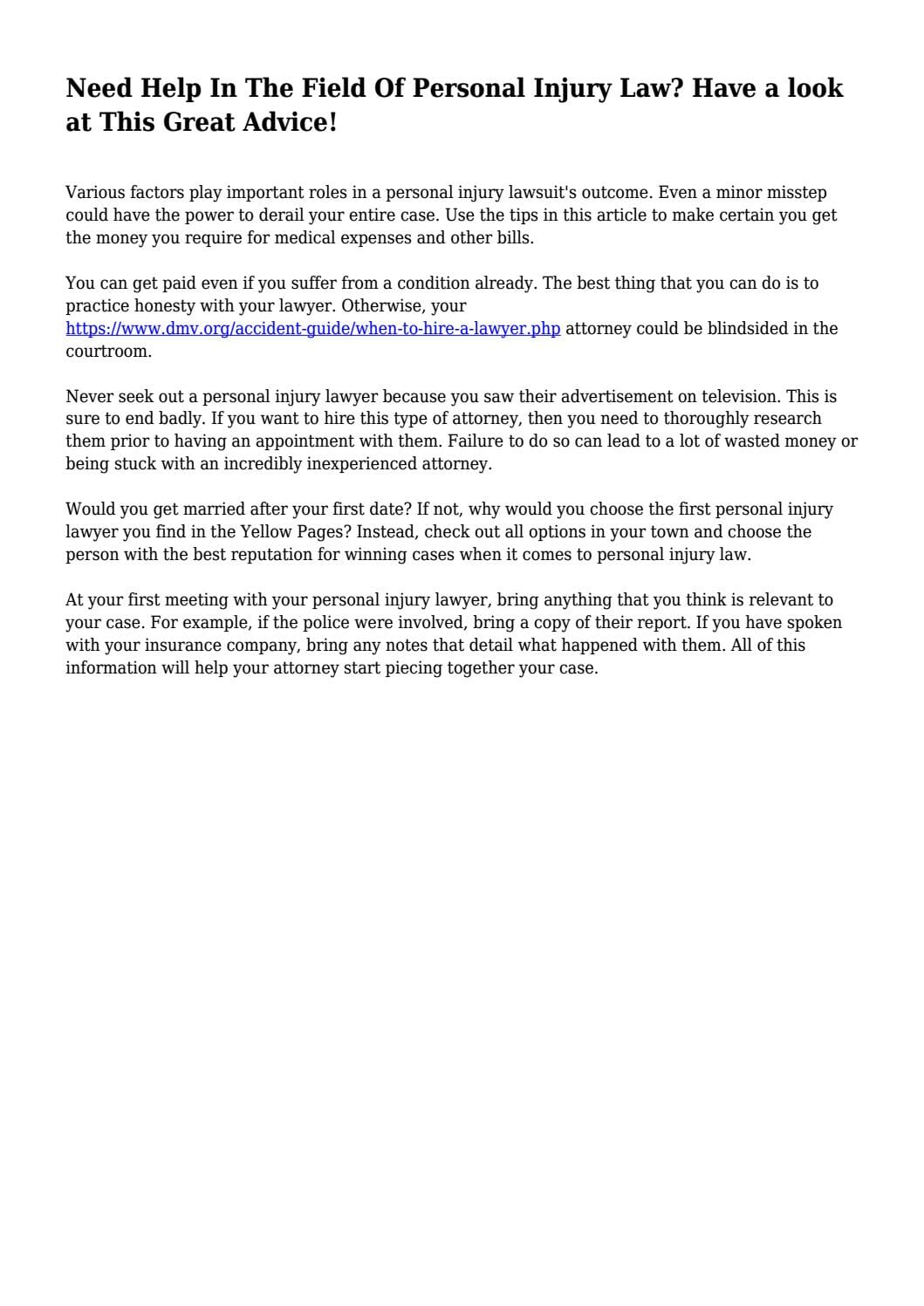The amount of money that personal injury lawyers make is based on the type of case they take. Many personal injury lawyers charge by the hour, but some offer free consultations in exchange for a reduced fee. A lot of lawyers also split their hourly rate into half-hour increments, which allows them to bill by the tenth of an hour or less. This gives them a higher income than the hourly rate would normally provide.
Attorneys are typically paid on a contingency basis, but sometimes they charge a lower fee if a settlement is reached before a lawsuit is filed. If a settlement is reached before the lawsuit is filed, the fee of the personal injury attorney will be significantly lower, typically around a third of the settlement. In some cases, attorneys will even charge a flat fee if they do not receive a settlement at all.
The fee that a personal injury lawyer charges is contingent on the result of the case. It does not pay them hourly, but instead they are paid on a percentage of the settlement amount. Most personal injury attorneys do not charge their clients until a settlement check is issued. This helps to keep their costs to a minimum. Moreover, a personal injury lawyer will only take cases that are likely to win in court.
Contingency fee agreements are the most common form of fees for personal injury lawyers. In these arrangements, a plaintiff and the personal injury lawyer agree to pay a certain percentage of their total recovery. This percentage is negotiated and appears in the contingency fee agreement. Personal injury lawyers usually work on a contingency fee arrangement with their clients. With this type of arrangement, the lawyer receives a percentage of the compensation that is received in the case.
The fees and expenses for a personal injury lawsuit vary based on the type of case and its complexity. The cost of legal fees depends on the complexity of the case and the severity of the injury. The lawyer will charge for these expenses as they become due. The compensation he or she receives from the case is used to pay for these expenses. It is important to understand the percentage a personal injury attorney receives from the settlement or judgment.
Many personal injury lawyers charge a contingency fee, allowing a client to pay only after a successful settlement or judgment. Otherwise, paying a lawyer for billable hours can delay settlement or payment. After all, medical bills can often be more than a client's bank account. A contingency fee arrangement may be more advantageous than a fixed fee arrangement. A contingency fee can help a client avoid this issue entirely.
Many personal injury attorneys work on a contingency fee, which means that you don't pay them unless you win. Most personal injury attorneys receive a percentage of the amount recovered or the amount awarded in a court verdict. If your case is unsuccessful, there is no fee for the attorney. The percentage varies between 25 percent and 33 percent. If you are unsure of the amount of compensation you will receive, you should carefully consider your budget and the value of the legal service.








